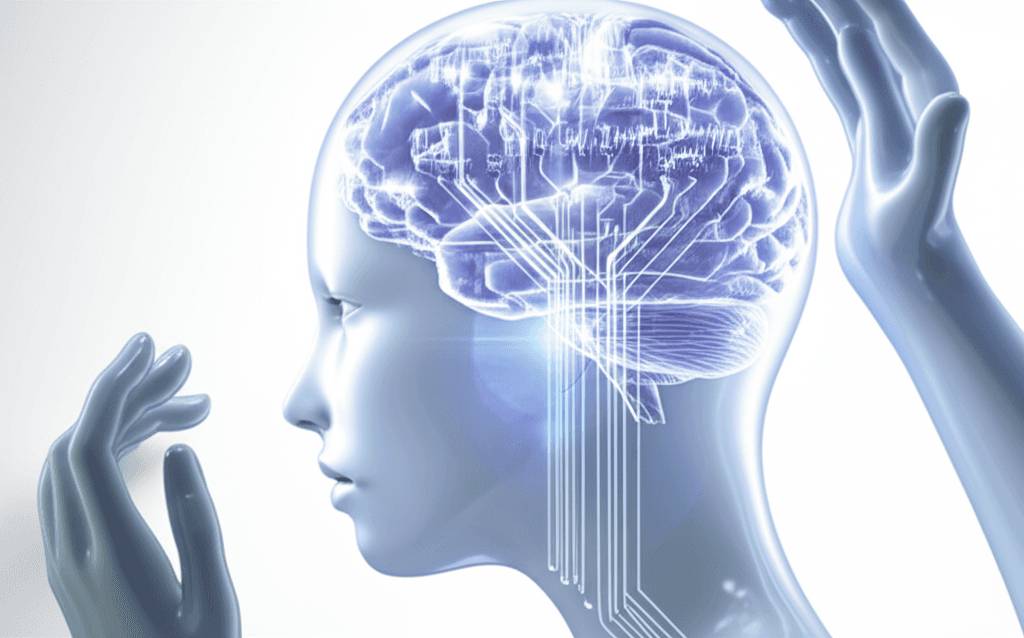AI Becomes 'Cognitive Prosthesis,' Augmenting Human Thought Amidst New Concerns
Augmenting human minds: how AI acts as a "cognitive prosthesis," raising hopes and fears for our future intelligence.
August 1, 2025

Eighty-one-year-old psychologist Harvey Lieberman has found an unlikely collaborator in his work: ChatGPT. He describes the artificial intelligence chatbot not as a crutch, but as a "cognitive prosthesis — an active extension of my thinking process."[1] This perspective is at the heart of a burgeoning discussion within psychology and neuroscience about the role of AI in human cognition. While AI systems like ChatGPT can generate human-like text and even mimic empathy, they do not possess genuine understanding or consciousness.[2][3] Yet, for many, they are becoming powerful tools that can aid and augment human thought, raising questions about the future of intelligence, mental health, and the very nature of human-computer interaction.[4][5] The concept of AI as a cognitive prosthesis suggests that these technologies can act as external aids to our minds, much like a prosthetic limb assists with physical movement.[6][7] This idea, which has roots in early human innovations like writing and the abacus, is finding new life in the age of advanced AI.[6]
The idea that AI can serve as a "cognitive prosthesis" has been explored by various researchers long before the advent of ChatGPT.[8][6] The core concept is that technology can be used to support or replace impaired cognitive functions, similar to how a physical prosthesis restores a physical function.[9] Early work in this area focused on creating computer-based systems to help individuals with cognitive disabilities resulting from brain injuries.[9] These systems were designed to assist with memory, organization, and planning.[9] With the rise of powerful large language models like ChatGPT, this concept is now being applied more broadly.[7] Some economists and psychologists suggest that AI's primary impact might not be in supercharging the minds of the already intelligent, but in helping those with lower cognitive skills reach a more average level of functioning.[7] In this view, AI acts as a leveler, providing support for everyday cognitive tasks.[7] This aligns with the function of a traditional prosthesis, which aims to approximate normal function rather than create superhuman abilities.[7] For instance, AI can assist individuals in drafting emails, summarizing complex information, and even engaging in creative writing, effectively extending their cognitive reach.
However, the "cognitive prosthesis" metaphor also carries a more cautionary tale. Just as relying too heavily on a crutch can weaken a limb, some experts worry that over-reliance on AI could lead to the atrophy of our own cognitive abilities.[8] Neuropsychology professor Umberto León Domínguez has raised concerns about "cognitive offloading," where the constant use of AI for thinking processes might weaken our minds.[8] This is analogous to how the widespread use of GPS has been linked to a decline in our natural sense of spatial cognition and memory.[8] The fear is that by outsourcing our thinking to machines, we may diminish our own capacity for critical thought, problem-solving, and creativity.[8] There are also significant ethical concerns to consider. The data used to train AI models can contain biases, which can then be amplified and perpetuated by the AI, potentially leading to discriminatory outcomes in areas like mental health diagnosis.[10][11][3] Privacy is another major issue, as AI systems often require access to vast amounts of personal data to function effectively, raising questions about how that data is used and protected.[12][3][11]
Despite these concerns, the potential benefits of AI in psychology and mental health are undeniable. AI algorithms can analyze vast datasets to identify patterns that may not be apparent to human clinicians, potentially leading to earlier and more accurate diagnoses of mental health conditions.[11][13] Studies have shown that AI can be used to detect early signs of cognitive impairment and even predict the risk of developing certain mental illnesses.[12][14] AI-powered chatbots and virtual reality therapies are already being used to provide support for conditions like anxiety and depression, offering a more accessible and often more affordable alternative to traditional therapy.[10][14] In some cases, AI has even outperformed humans in tasks related to emotional awareness.[15] One study found that ChatGPT's responses to scenarios designed to test emotional awareness were significantly more nuanced and accurate than those of the general population.[15] This suggests that AI could be a valuable tool for training individuals with emotional awareness impairments.[15] The technology also shows promise in creating personalized treatment plans by analyzing a patient's unique genetic, environmental, and behavioral data.[10][14]
Ultimately, the consensus among many psychologists is that while AI can be a powerful tool, it cannot replace the uniquely human aspects of therapy and cognition.[16][3] AI models lack genuine emotional intelligence, empathy, and the ability to understand the subtle nuances of human experience.[17][16] The therapeutic relationship, with its emphasis on human connection, trust, and presence, is something that current AI cannot replicate.[3][16] The warmth in a therapist's voice, the comfort of eye contact, and the feeling of being truly seen and heard are all crucial elements of the healing process that fall outside the capabilities of an algorithm.[16] Therefore, the most promising path forward seems to be a human-centered approach to AI development, where the technology is designed to augment, rather than replace, human intelligence and connection.[6] This involves a collaborative effort between computer scientists, psychologists, and ethicists to ensure that AI is developed and used in a way that is safe, effective, and beneficial for humanity. For individuals like Harvey Lieberman, ChatGPT and other AI tools represent a new frontier in cognitive enhancement, offering a way to extend his intellectual reach and continue his life's work.[1] His experience highlights both the immense potential and the complex challenges of integrating artificial intelligence into our cognitive lives.
Sources
[2]
[5]
[6]
[9]
[10]
[11]
[12]
[14]
[15]